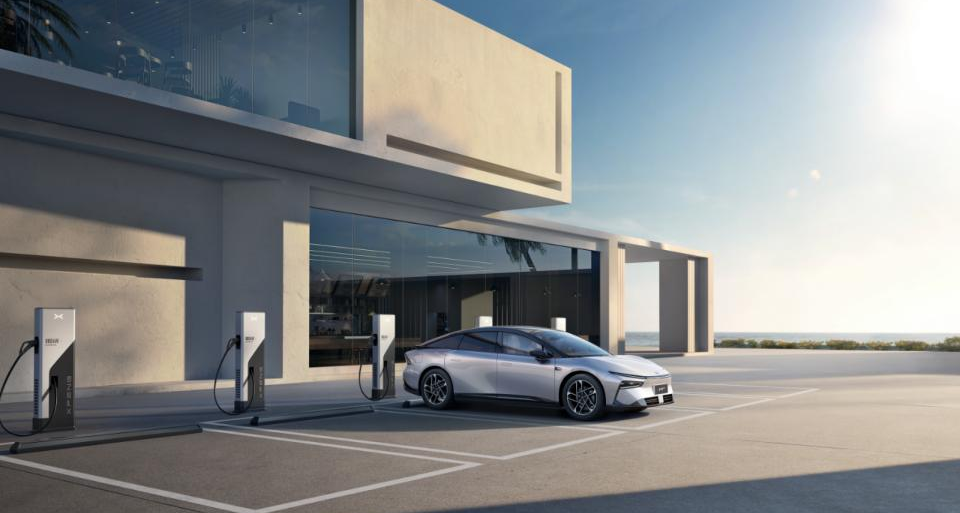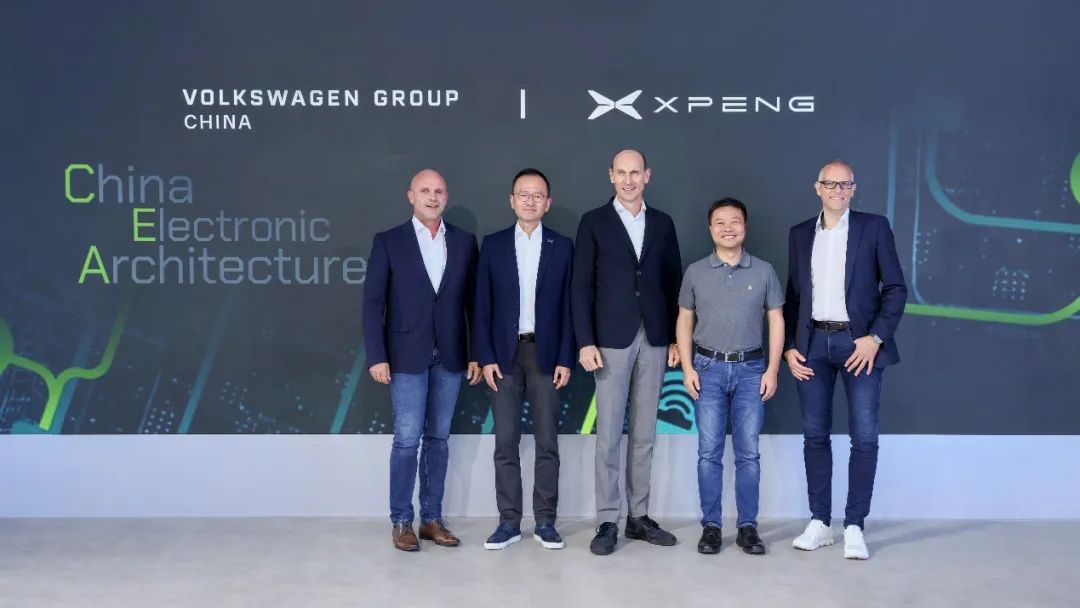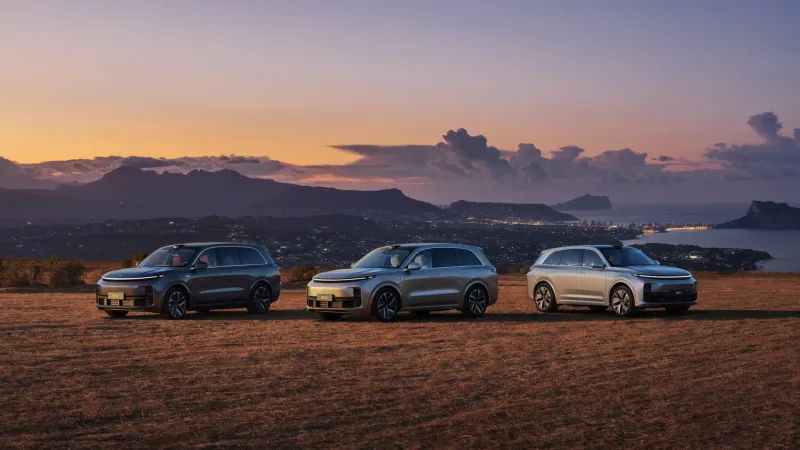"Big and Small Collaboration" Builds the Network: Potential Birth of China's Ultra-Fast Charging King
![]() 01/17 2025
01/17 2025
![]() 538
538
Introduction | Lead
The partnership between Volkswagen, a renowned joint venture brand, and XPeng Motors, a representative of emerging domestic automakers, has taken a significant leap forward. Amidst the fiercely competitive new energy vehicle market, traditional automakers and up-and-coming new energy players have chosen to unite.
Produced by | Heyan Yueche Studio
Written by | Cai Jialun
Edited by | He Zi
Total Words: 1774
Reading Time: 3 Minutes
Recently, Volkswagen Group announced a joint venture with XPeng Motors to establish an ultra-fast charging network comprising over 20,000 self-operated charging stations, aiming to create the largest ultra-fast charging network in China. This strategic collaboration, which builds upon their initial partnership in July 2023, expands their business scope, planning to provide users with over 20,000 charging terminals and ultra-fast charging coverage across 420 cities in China. Can Volkswagen and XPeng emerge as the "new king" in the domestic new energy market?

△Volkswagen and XPeng aim to collaborate to establish the largest ultra-fast charging network in China
Collaborating to Build the Network
This marks the fifth collaboration between Volkswagen and XPeng. Previously, the two companies actively cooperated on the electronic and electrical architecture of pure electric vehicles. From Volkswagen's initial investment in XPeng shares to the signing of a strategic agreement on electronic and electrical architecture technology, and ultimately reaching cooperation on ultra-fast charging network construction, their partnership has consistently deepened, demonstrating Volkswagen's commitment to accelerating its transition to new energy. Volkswagen values XPeng's technology, while XPeng appreciates Volkswagen's investment and endorsement.
This elevated level of cooperation represents a forward-thinking strategy for both Volkswagen and XPeng. As the penetration rate of domestic new energy vehicles continues to rise, the construction of ultra-fast charging networks has become a major focus for leading new energy automakers. For most new energy vehicle owners, charging remains a significant concern in daily life. The coverage of charging stations, particularly ultra-fast charging stations, still lags far behind that of gas stations. Achieving comprehensive charging network coverage requires collective efforts from all parties involved.
Prior to their collaboration, both XPeng and Volkswagen had made strides in charging network construction. By the end of 2024, XPeng's self-operated charging network included 1,920 stations, with 939 being super fast charging stations. Currently, XPeng's 5C supercharging technology, paired with the 5C supercharging AI battery, holds significant potential. CAMS, a charging company with Volkswagen as a shareholder, has been operational for five years and has established 1,621 supercharging stations across 213 cities. Both parties possess a solid foundation in charging network construction, making their ambition to build the largest ultra-fast charging network covering China well-founded.

△Volkswagen and XPeng sign a strategic agreement on electronic and electrical architecture technology
A Crowded Race in Charging Network Development
In June 2023, the State Council issued the "Guiding Opinions on Further Constructing a High-Quality Charging Infrastructure System," laying a solid foundation for the rapid development of domestic charging networks. Subsequently, the "national team" represented by State Grid, third-party charging companies, and major automakers intensified their efforts in charging network construction and innovation in fast charging technology. However, the initial investment in charging network development is substantial, maintenance costs are high, and the profit cycle is lengthy. It is challenging for enterprises to navigate this landscape alone. In 2024, the trend of companies uniting to stay competitive became increasingly evident, making the domestic charging network race even more intense.
In October 2024, new energy automaker Li Auto officially entered into a strategic cooperation with Sinopec for charging services. Li Auto users can utilize the app to locate and activate Sinopec's charging terminals nationwide. The "Charging Map" on the Li Auto app already displays over 80,000 charging stations. The third-party charging platform Yunkuai and battery giant CATL have deepened their collaboration, jointly launching the "Super Charging 10,000 Stations" plan, covering hundreds of cities. Concurrently, they will establish a closed-loop ecosystem encompassing "supercharging batteries + supercharging networks + supercharging services."
Despite the crowded landscape in ultra-fast charging network development, automakers maintain a cooperative attitude, aiming to interconnect and collaborate to weave a comprehensive "charging network." Huawei has joined forces with 11 automakers, including AITO and BYD, to establish a supercharging alliance, advocating for a charging model with broader scenario coverage and enhanced user experience. Volkswagen and XPeng still face a long road ahead in building the largest ultra-fast charging network in China, and they must address significant challenges: Can the established ultra-fast charging stations adhere to consistent charging standards, and can charging safety be guaranteed? The charging network will generate massive data traffic. Unlike fuel vehicles, pure electric vehicles have network security vulnerabilities and privacy protection issues during charging. Whether the established charging network can provide reliable network security protection is a concern for Volkswagen, XPeng, and other charging manufacturers.

△Li Auto and Sinopec officially entered into a strategic cooperation for charging services
Is the Charging Network Ready?
It is widely accepted in the automotive industry that new energy vehicles will replace fuel vehicles as the mainstream in the automotive market. In the future, the construction and optimization of charging infrastructure will become increasingly frequent. Relevant securities companies predict that the domestic charging pile market size is expected to approach 80 billion yuan by 2026 and exceed 140 billion yuan by 2030. Currently, the development of charging networks still requires technological advancements and time to mature. Concurrently, the introduction of relevant policies is anticipated to address the standardization of charging piles, potentially forming a vast blue ocean for charging services.
△The future market size of charging networks will be immense
Commentary
The robust partnership between Volkswagen and XPeng sends a new signal to the automotive market. In the era of electrification and intelligence, the automotive industry is undergoing significant changes, and traditional giants like Volkswagen are striving for a transformation. With the continuous advancement of ultra-fast charging networks, this will further accelerate the encroachment of new energy vehicles into the territory of fuel vehicles, heralding a major reshuffle in the domestic automotive industry.
(This article is originally created by "Heyan Yueche" and cannot be reproduced without authorization)








